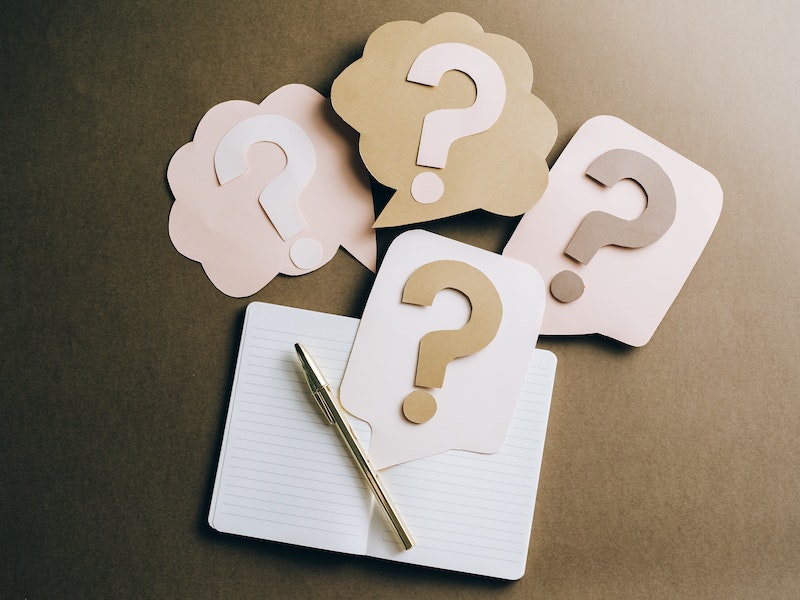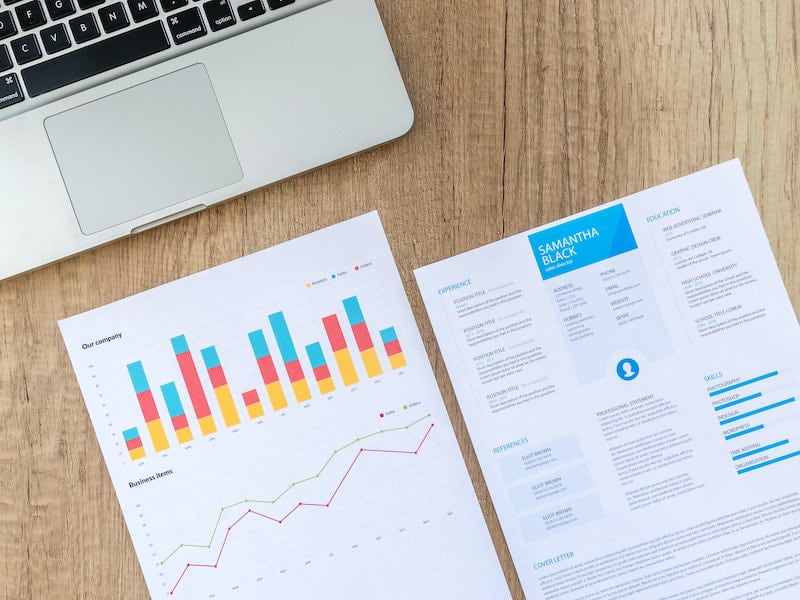Scoring an interview with a potential employer means you’ve gotten a foot in the door. But the last thing you want is to squander away that opportunity because you’re ill-prepared for what follows next. Googling a list of commonly asked questions is fine and dandy, but it’s important to be fully prepared for a job interview. How? By getting to know the company, learning how to make a lasting first impression, and conveying why you’d make a good hire. To help you lay the groundwork, we’ve put together a practical guide on how to prepare for an interview.
Tips On How To Prepare For An Interview
We break down the what, why, and how to prepare for an interview in 10 simple steps.
1. Study The Job Description And See How You Fit

What: The first step on how to prepare for an interview is to peruse the job posting to understand the role and see how you fit.
Why: The more you align yourself with the skills, experience, qualifications, and qualities required, the better you fit into the role and work culture. Not only that, the job description can give you an insight into what qualities you should emphasise in your interview and what questions the interviewer may ask.
How: Note down how your prior work experience corresponds with each detail. By now, you should have a good understanding of why you want the job and how you’re qualified.
2. Look Up The Company And Role

What: Another crucial part of preparing for an interview is to research the company, its products, and the role you’re applying for.
Why: Some thorough research can give you an edge over other applicants, as well as a broader understanding of the company, its core values, and culture. It also offers context for your interview, so you can pose the right questions to the interviewer.
How: Spend some time learning everything you can about the company—scour Google, look up the company’s website and LinkedIn, or speak to former employees in your network. You could even try out the product or service yourself and establish salary expectations based on your research.
3. Practise Answers To Common Interview Questions

What: Now that you’ve done your homework, the next step on how to prepare for an interview is to look up commonly asked questions and rehearse your answers. There are plenty of interview prep resources you can refer to online, with questions that typically include:
- Tell me about yourself.
- What can you bring to the company and role?
- What are your strengths and weaknesses?
- What is your greatest achievement at work?
- Tell me about a challenge you faced at work and how you overcame it.
Why: Rehearsing allows you to finetune your answers and commit the gist of them to memory. The more you repeat them, the more confident you’ll be during the actual interview. That said, try to refrain from memorising your answers verbatim lest you’ll sound scripted.
How: There’s no harm in asking the recruiter about the format of the interview, whether it’s an in-person, phone, video, or multi-stage interview. Then practise your answers, speaking voice, and/or body language accordingly. Speaking in front of a mirror is always a handy trick. Or else, get a friend or family member to help you out with a mock interview.
4. Put Together Examples From Work

What: Some interviewers may ask probing questions to gauge how you would react in certain situations. While it’s impossible to anticipate every possible scenario you’ll be quizzed on, it’s possible to put together some examples from your past experience and adapt them as needed.
Why: You don’t want to be caught off-guard, but you can prepare yourself to handle the unexpected. So be sure to incorporate this as part of your job interview rehearsal prep.
How: One way you can ensure your example is clear and concise is by using the STAR method:
- Situation: Briefly describe the scenario with just enough details so your interviewer understands the context.
- Task: Mention what your role in the situation was.
- Action: Explain what you did and why.
- Result: Conclude with the outcome and the lesson you learned.
5. Prepare Thoughtful Questions For The Interviewer

What: Normally, interviews wrap with a Q&A session between you and the interviewer. Don’t get too caught up on how to prepare for the interview that you forget to come up with a list of queries!
Why: Apart from helping you determine if you’re a good fit for the company, asking thoughtful and relevant questions reflects how well-versed or serious you are about the role.
How: List down any concerns you’d like clarified—job expectations, working arrangements, reporting lines, etc. If most of them have been answered during the interview, make sure to throw in a couple of ‘emergency’ questions. For instance, asking the interviewer what they personally like about the company.
6. Plan Your Outfit The Day Before

What: Much like going on a first date or a music festival, an interview also requires an appropriate, well thought out ‘fit.
Why: Dressing the part is a crucial step in preparing for an interview. You want to give potential employers a good first impression and feel confident when you step into the room.
How: Try to scope out the dresscode of the workplace you’re interviewing for and dress accordingly. Or else, business casual is generally appropriate. No wrinkly shirts or dresses, please. And if you’ve got a virtual interview, try to put on some pants.
Related: Ladies, Here’s How To Dress For A Corporate Or Creative Job Interview
7. Prepare Hard Copies Of Your Resume

What: Most employers request soft copies of your resume to accompany the application. But it’s still good practice to prepare hard copies of your resume prior to an interview.
Why: If, for some reason, your interviewers do not have access to copies of your resume, being able to furnish them with some demonstrates that you’re organised and well-prepared.
How: Print out at least three copies of your resume to anticipate multiple interviewers and one for yourself to refer to. In the case of a phone or video interview, it can still be useful to have a copy in front of you. Remember to include a reference list, whether you’ll be asked for it or not, and bring along a pen and notebook to jot down important notes.
8. Plan Your Logistics

What: Whether you’re driving or commuting on public transport, another way on how you can prepare for an interview is to look up your route (and parking) ahead of time.
Why: Interviews are stressful enough, and getting yourself there is a challenge on its own. Familiarising yourself with the location and leaving ample time for you to get to your appointment will help reduce some of that stress and anxiety.
How: Check the route, fill up your tank, and top up your Touch ‘n Go card ahead of time. And always, always leave early. If it’s a virtual or phone interview, make sure all hardwares and softwares are working, and your internet connection is up to speed.
Related (And Just In Case): Call These Car Battery Delivery Services If Your Car Won’t Start
9. Sell Yourself

What: A big part of interviews is to sell yourself. But presenting yourself accurately and in a positive light doesn’t have to feel like a sales pitch.
Why: Think of it this way. If you have the professional skills and experiences that may set you apart from the rest, it’s only fitting that you highlight them to potential employers. Humbly.
How: Share relevant information on how your skills or experience can constructively contribute to the overall goals of the department and company. And don’t forget to quantify your achievements, wherever you can. Revenue figures, engagement numbers, or budget savings can all be used to communicate your impact and efficiency.
10. Follow Up After The Interview

What: This isn’t exactly a tip on how to prepare for an interview per se, but following up with the employer post-interview can be a thoughtful gesture on your part.
Why: It reminds them of the conversation you had and shows them that you are genuinely keen on the position. It’s also a chance for you to bring up any points you left out during the interview.
How: Keep it brief. But make sure to reintroduce yourself and thank the interviewer for their time. Then rehash or bring up any important points you’d like them to know. Reassure them that you’re happy to answer any additional questions and that you look forward to hearing from them.
Ace Your Next Job Interview With These Tips On How To Prepare For An Interview

If you didn’t know how or what to prepare for an interview, we hope the 10 tips above have enlightened you. And as salarymen ourselves, here’s our final word of advice: be honest about your strengths and shortcomings, and sincere about your intentions. Humility and a willingness to learn may just tip the scale in your favour!
If you’re looking for more job opportunities, make sure it’s on one of these best job portals in Malaysia. Not sure how to write a cover letter to go with your resume? Check out our guide to writing concise and compelling cover letters.

